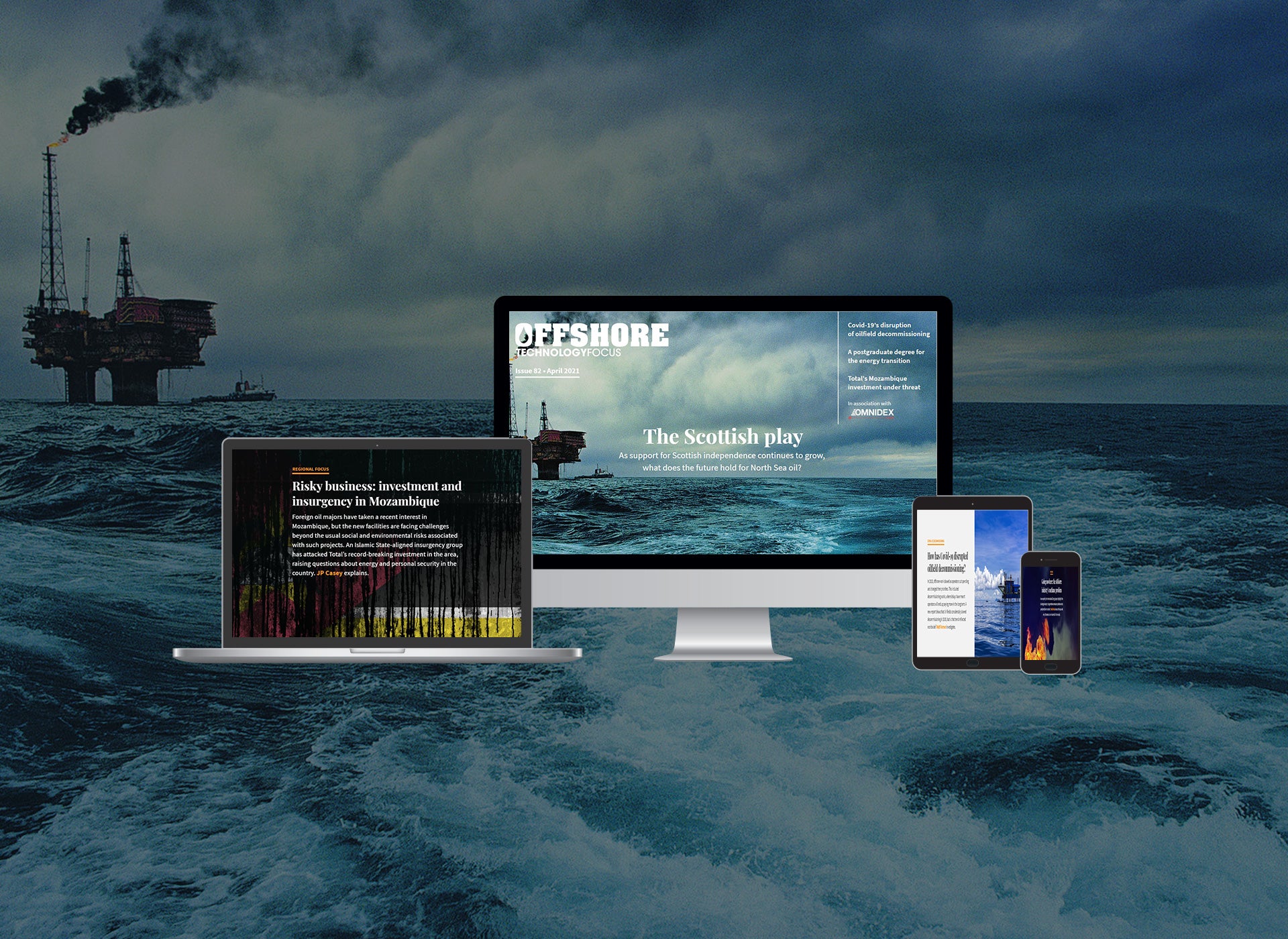
In light of Brexit, the possibility of a new attempt at Scottish independence is looming large. If it should happen, one of the big questions that will need answering is: what happens to North Sea oil? We dive into the geopolitics of the region and ask what the future holds for Scotland’s relationship to the North Sea.
Elsewhere, OGUK’s 2020 Decommissioning Insight report has revealed that continuing market uncertainty due to Covid-19 has led to around £500m of decommissioning expenditure previously scheduled for 2020-22 being deferred into the future. While all parts of the industry have been hit hard its no surprise but what does it mean for decommissioning long-term?
And speaking of threats to the offshore industry, Mozambique is currently battling an Islamic State-linked insurgency that has sent more than half a million people fleeing. Among those affected were the workers of Total’s $20bn LNG project in the region, who were evacuated as attacks encroached on what is Africa’s biggest private investment. We examine the situation, the promises and pitfalls of oil in Mozambique and and ask more broadly how companies can mitigate such risks.
Whether you are on a desktop, tablet or smartphone, you can read the magazine for free online, and join the conversation on Twitter.

In this issue
Support for Scottish independence is booming – what does that mean for North Sea oil?
In light of Brexit, the possibility of a new attempt at Scottish independence is looming large. A tentpole issue on both sides of the debate has been the question of North Sea oil. With the situation fundamentally altered in the seven years since Scotland’s independence referendum, Matthew Hall dives into the situation as it stands and asks what the future holds for Scotland’s relationship to the North Sea.

How has Covid-19 disrupted oilfield decommissioning?
In 2020, offshore work slowed as operators cut spending and changed their priorities. This included decommissioning works, where delays have meant operators will end up paying more in the long term. A new report shows that UK fields considerably slowed decommissioning in 2020, but is that trend reflected worldwide? Matt Farmer investigates.

Going nowhere: the offshore industry’s methane problem
A new report by the International Energy Agency highlight’s the oil and gas industry’s huge methane emissions problem and its persistent failure to tackle it. Heidi Vella looks at the issue and why it threatens to be ‘existential’ for the sector.

Qualifying for the energy transition with the University of Aberdeen
The University of Aberdeen has launched the UK’s first postgraduate degree in Energy Transition Systems and Technologies. Yoana Cholteeva speaks with Professor Russell McKenna, chair in energy transition at the university, about the impact that the course can have on the future generation of engineers.

Risky business: investment and insurgency in Mozambique
Foreign oil majors have taken a recent interest in Mozambique, but the new facilities are facing challenges beyond the usual social and environmental risks associated with such projects. An Islamic State-aligned insurgency group has attacked Total’s record-breaking investment in the area, raising questions about energy and personal security in the country. JP Casey explains.

Sizing up – is automation coming to seismic surveys?
For the oil and gas industry, change has never before been made at such a pace. The sector is facing the energy transition, tightening margins, and unrelenting scrutiny of its environmental practices. Amidst all this, Blue Ocean Seismic Services is setting out to dramatically change seismic surveys through automation. Andrew Tunnicliffe speaks to the company to find out more.

The oceans between European and American oil and gas companies
In January 2021, French oil and gas giant Total announced its intention not to renew its membership of the American Petroleum Institute. This followed a similar announcement by British giant BP in February 2020. The API is the US’ largest and most powerful oil trade body so, Matt Farmer asks, if European producers are distancing themselves, does this represent a rift across the Atlantic?

Preview – Offshore Technology Focus June 2021
Encouraged by the concept of the circular economy, the oil and gas industry can take waste by-products to create new, useful products, such as water and even hydrogen. With the oil and gas industry having the chance to reduce waste by reusing and recycling, we explore how commercially viable these options could be and what stands in the way to this method’s wide adoption.
Also in this issue, we speak to seabed mappers Fugro about their contribution to a project that wants to fill in the world’s seas with public geodata before the year 2030 and look at how South America’s industry has resisted the brunt of the Covid-19 pandemic.
Plus, we ask whether small-scale divestment could make a big difference to offshore finances, delve into how marketing for oil and gas has changed during the green revolution, and see what lessons can be learnt from the five stranded Alco Shipping employees.



